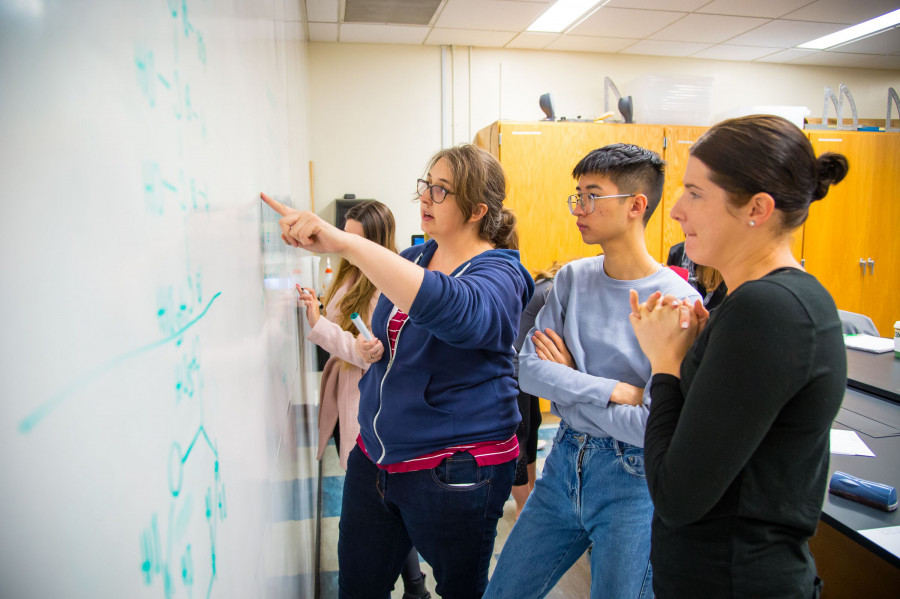Why Study Neuroscience?
Increasing your understanding of the complex functions of the nervous system as it relates to human health and adversity will provide valuable insight understanding of the human condition. Furthermore, an in-depth understanding of the rapidly expanding field of neuroscience and the improved methods used to study it will provide a foundation for advanced students and scientists to develop treatments for neurodegenerative diseases such as Alzheimer’s, Parkinson’s, and Multiple Sclerosis.
Neuroscience has been indispensable in developing therapeutics and effective treatment that help individuals challenged by varied mental health disorders. These developments are likely to provide significant benefits for society and have implications for a diverse range of public policy areas such as health, education, law, and security.
Why Study Neuroscience at MMC?
The Neuroscience minor at MMC is an interdisciplinary and interdepartmental minor that explores some of the most intriguing questions about the brain, behavior and science. This minor can be fulfilled with a psychology or biology major, which offers an excellent foundation for admission to graduate or professional programs, mainly for careers involving research, teaching, and medicine.
MMC’s prime location in New York City affords you indispensable opportunities for practical research experiences both onsite at MMC or offsite in renowned academic and medical research institutions. As an MMC student, you’ll also be given preference to broad research internship opportunities with prominent neuroscientists in renowned laboratories. MMC stands out among other NYC colleges with small class sizes. Unlimited faculty-student interactions facilitate a firm grasp on fundamental and advanced concepts inherent to the neuroscience discipline.
What You Will Learn
As an MMC neuroscience minor, you’ll gain an understanding of the field of neuroscience from a historic and current perspective.
- Your studies will emphasize historic highlights that elucidate the relationship between the nervous system, behavior, and emotions.
- MMC students become familiar with research methodology commonly used by neuroscientists and psychologists. The empirical approach will be examined with an emphasis on the benefits and limitations of this method as it relates to Neuroscience.
- You’ll become familiar with the rapidly growing body of literature and research in the field of Neuroscience with a particular interest in Biopsychology.
Careers and Outcomes
Take a Tour of the Natural Sciences Department
Current students Elizabeth Scott ’21 and Jade Johnsamson ’22 take you on a virtual tour of the labs and classrooms that make up the Natural Sciences Department. See why our facilities and small class sizes give you the kind of practical lab experience you want.





